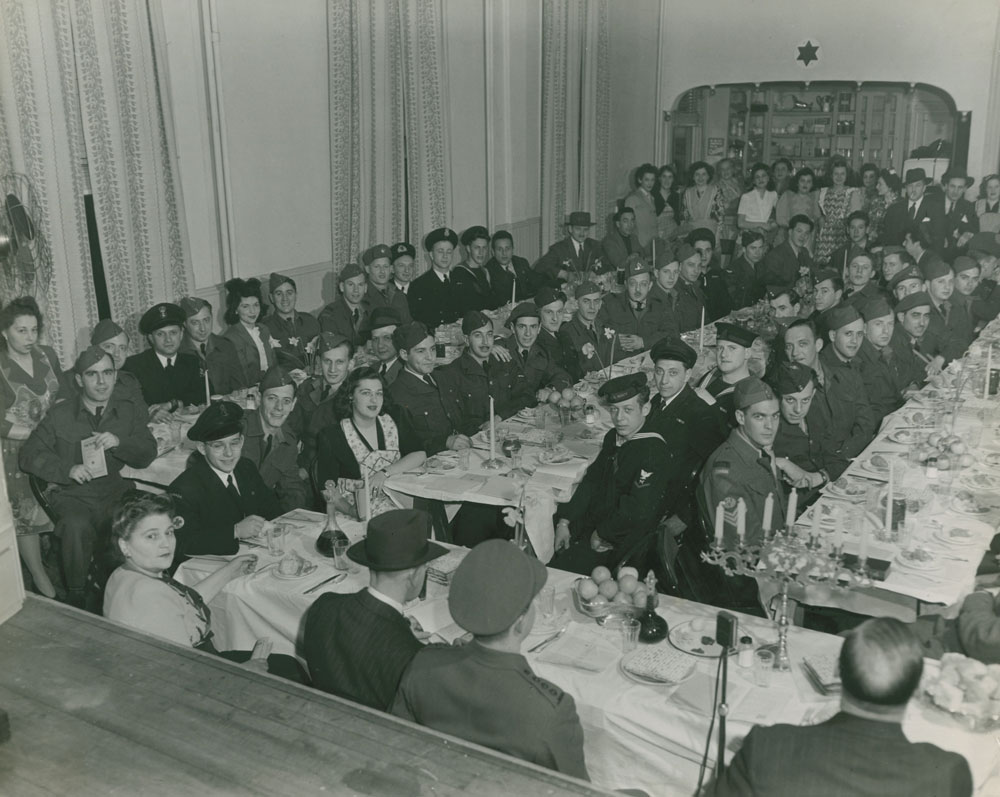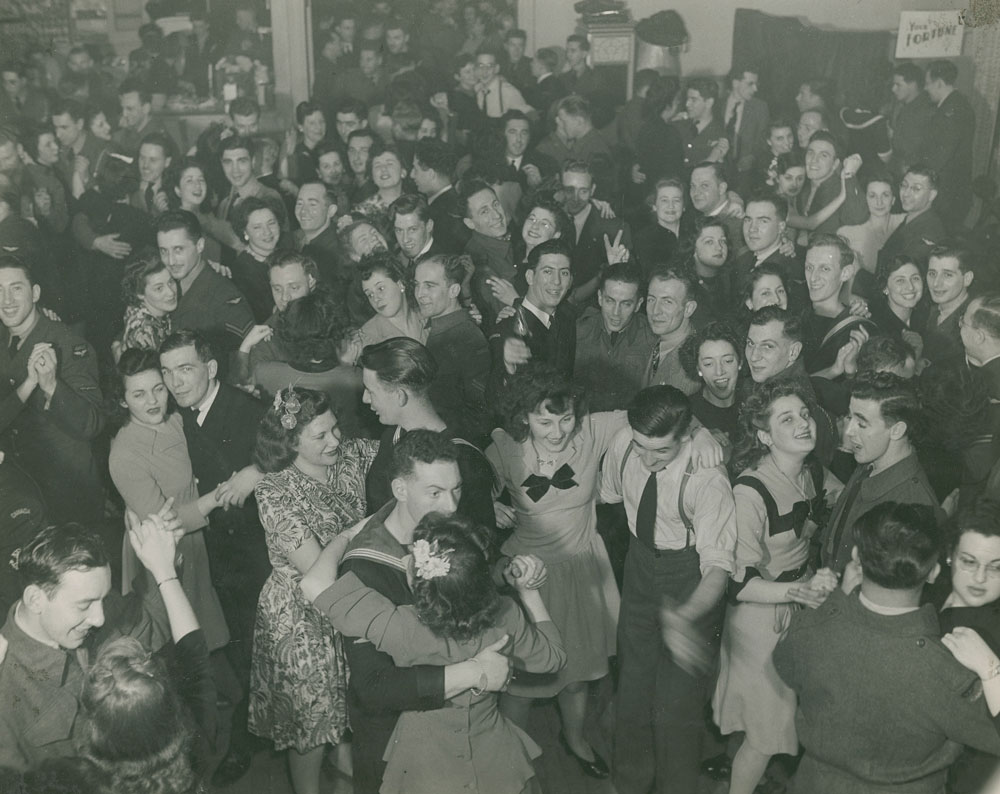Jewish Women Created a Special Volunteer Effort
The Second World War was a terrifying time for Jews throughout the world. It would take the end of the war and the liberating of the death camps for people to realize the full extent to which Jews were persecuted under the Nazi regime. Canada was not immune to anti-Semitism. Our nation’s record with regard to providing refuge to Jews fleeing from persecution was shamefully abysmal.

Passover Seder 1944, Jewish Historical Society, Nova Scotia Archives.
Like many other religious groups within the city, the Jewish community in Halifax rallied in numerous ways to the challenge of providing relief and hospitality during wartime. While Jewish women volunteered in non-sectarian efforts in the city, their activities also included their work in women-only groups such as Hadassah-Wizo and B’nai B’rith. In addition to knitting for the Red Cross, they campaigned and raised money for hospitals, servicemen’s libraries and visited soldiers in military hospitals.
The War Efforts Committee, nationally organized through the Canadian Jewish Council, first established a Women’s Committee in early 1940. Under supervision and sub-committees formed across the country, women carried out the collection of clothing for bombed areas, arranging for food to be sent to military hospitals and providing hospitality to enlisted men.
One special effort that involved both men and women in the Jewish community of Halifax was the operation of the Quinpool Road Hostel that catered to Jewish servicemen. Established in late 1942 and located on Quinpool Road, the hostel provided meals, entertainment, dancing and religious services. The centre was not strictly for Jewish servicemen; however, the women wished to provide a warm and familiar atmosphere that catered to Jewish dietary laws and culture. On average, 559 servicemen per week attended events at the hostel and each month over 2,000 dinners were served. At a Passover Seder in 1942, over 400 meals were prepared for Jewish servicemen from all over the country.

Dance for Servicemen. Jewish Historical Society, Nova Scotia Archives. Roy Tidman photo.
In the running of the hostel, males dominated the executive committee where major decisions were made and women carried out much of the volunteer work. According to Deborah Osmond*, “separate war effort activities of women’s groups at the hostel were sometimes discouraged. In July 1943, the Women’s Auxiliary B’nai B’rith requested to use space in the building for the collection of used clothing for children in Russia. It was decided that the request not be granted because it was thought inadvisable to set a precedent in the matter.” This pattern of male decision-making within mixed gender organizations was not unique to the Jewish community.
Nevertheless, Jewish women in Halifax made outstanding contributions to wartime relief and hospitality, whether through the hostel, their women-only organizations or participation in other community activities.
Sources:
Jewish Historical Society records, Nova Scotia Archives.
*Deborah Osmond, “Tzedekah: Jewish Women and Charity in Halifax 1920-1945,” Honours Essay in History, Dalhousie University, August 1996, p. 65.
